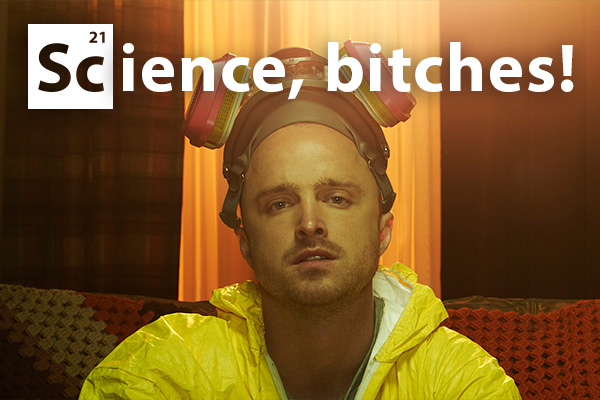Science, Bitches! | Issue 20
I Call Bullshit
By the time we make it to university, most of us know to take Wikipedia with a pinch of salt. But what about the rest of the Internet? How do you know that one little trick really won’t get rid of your belly fat? What if aliens really did build the pyramids? Maybe fluoridated water really does calcify your brain? Here’s how to sort the pseudoscience from the science, bitches.
The first thing to remember is a little thing called the burden of proof. Basically, if you want to claim that something is true, you have to prove it. If, in a double-blinded clinical trial, crystals are shown to actually cure something, I’ll believe it. But until then I’ll happily call bullshit, and you should too – because that’s how science works.
Now, by “proof” I mean scientific evidence obtained under experimental conditions, with appropriate controls and all that. One person (or even one hundred) swearing that something works for them is anecdotal evidence and doesn’t count. What do count are peer-reviewed papers. If the article you’re reading doesn’t reference any, don’t believe a word it says – yep, even this one! Seriously though, we have a word limit.
That brings me to my next point: if you’re dubious, just Google it (preferably use Google Scholar, but the standard version can be okay too). Just remember: quantity does not mean quality – blogs aren’t exactly peer reviewed, and neither are websites like “naturalnews,” “realfarma” and “undergroundhealth.” As your grandma probably told you: if something is too good to be true, it probably is.
But what if [insert organisation here] doesn’t want you to know the truth? Everyone is under the thumb of Big Pharmacy, right? If that ancient Chinese herb cures cancer AND obesity, they’ll lose billions – that’s why the idea is being oppressed! Sure, except that a lot of science is publicly funded. And most scientists do science for the love of it, not because of the money – it doesn’t exactly pay well. If someone found a miracle cure, I promise you would hear about it. You would hear about it everywhere, not just in dodgy popups or obscure websites. Nature and Science love that shit!
And speaking of miracle cures, the term “miracle cure” is a warning sign in itself. Science does not happen overnight, and does not work by magic (especially when it comes to complex diseases like cancer, which are unlikely to ever have a “cure” because they are not monofactorial but are rather the result of a variety of things going wrong in a specific place). Claiming to have found a cure for cancer is like claiming that there is a single fix for a broken car.
Other buzzwords to watch out for are “natural” (so is smallpox); “toxins” (your liver can deal with those); “ancient” (so is witch-burning); “alternative medicine” (aka, not proven to work); and so on.
So, who can you trust? Doctors? Unfortunately, anyone can call themselves a doctor, some legitimately (PhD in philosophy, Gallifreyan) and some less so (a chiropractor counts, right? Wrong). Even medical doctors and experts can get it wrong or straight up lie.
That’s why we rely on the scientific consensus. It’s a lot less exciting, and a lot more difficult. A lot of people do a lot of research over a lot of years until there is enough evidence to accept something as fact. And holy shit – they’ve come up with some great things. That’s real science, bitches.






